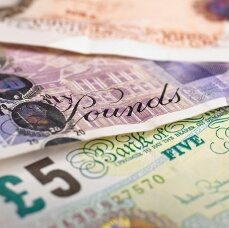The British pound declined against the euro, US dollar, and other major peers on Tuesday, as Parliament prepared to begin discussing the governmentâs triggering of Article 50. The debate, which decides the future of the United Kingdom departure of the European Union, is keeping investors away from the British currency.
The UK government is pushing for its Article 50 bill to be approved by Parliament as soon as possible, as Prime Minister Theresa May attempts to start the Brexit process in March. Worried anticipation spread between traders, which muted their appetite for the British pound, as concerns mounted towards the speed at which the legislation is expected to be pushed through.
Data was unsupportive today as well, as a consumer credit supply report by the consumer credit supply report said that it grew by 1.039 billion pounds in December 2016. This compares to expectations of 1.7 billion pounds, which raised worries of a waning demand for credit.
Retail sales also disappointed, as a report by the Office for National Statistics said that retail sales rose by 4.3 percent in December 2016 from a year earlier and by 1.9 percent from November 2016. The two reports painted a picture of slowing consumer activity in the United Kingdom, which could weigh on the economic growth in 2017.
On a positive note, consumer confidence rose, according to a report by YouGov. The YouGov/Cebr Consumer Confidence Index rose to 110.3 in January to have its biggest increase since August.
GBP/USD traded at 1.2565 as of 18:00 GMT on Tuesday, from 1.2415 at 09:55 GMT, the pairâs lowest level since January 23. GBP/USD opened trading today at 1.2501.
EUR/GBP was at 0.8581, after touching 0.8627 at 12:00 GMT, the strongest level since January 24. EUR/GBP started the day at 0.8561.
If you have any questions, comments or opinions regarding the Great Britain Pound,
feel free to post them using the commentary form below.



Be First to Comment